Together we can achieve anything.
Together we fight the virus and rebuild the world safer, stronger and more inclusive.
Together we learn how to make it more vibrant and beautiful.
The eyes of the refugees in the photographs show the struggles and hopes of our world. They have seen pain and they have seen war. They have gone through conflict, persecution and unimaginable suffering and lived with the fear that there will be no „tomorrow” for them and their loved ones. They fled their homes for a life of hope.
Their stories show us that we are together. They came to Romania and made it „home”. They come from places with limited access to medical or social services, education and the resources needed to live safely. They work in the medical field and know how important it is to do good because they have seen, more than anyone else, what evil means.
They can’t be in stand by and rather go to the front line where they are needed most. They volunteer in Covid hospitals, learning to be as best doctors and nurses they can be, healing and alleviating suffering. They want to help, to make a difference.
Together with them, we are a team. We learn from each other because we know that no one is safe until we are all safe.
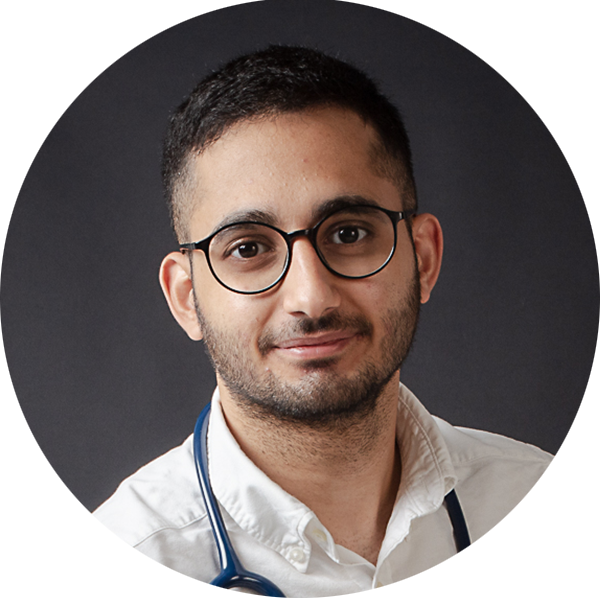
Abdulraoof Al-Khateeb came from Syria to Romania as a refugee, but also because he could study medicine here, which he dreamed of. It wasn’t easy at first, he says. „I didn’t know the traditions and culture of the country. I didn’t know the language, but slowly, slowly, I started to connect with people, to communicate better with them and to participate in many activities in Romania.”
He volunteered right on the front line of the emergency department of the Covid hospital in Timisoara. What impressed him most was how people were away from their families and he tried to ease their suffering.
„I saw a lot of patients in a crisis situation, who had breathing difficulties and other kinds of chronic illnesses. It was very hard to see them away from their families, moreover, they were suffering from a lot of illnesses and I always tried to help them as much as I could,” Abdulraoof recalls.
„I wanted to see them well and leave a smile on their faces,” he says, thinking that what he always dreamed of, as a child in Syria, was to be able to help those around him. It’s why he chose to be a doctor.
„I chose medicine to help people. At the same time, it’s interesting to know physiology, how the human body works. That way, you learn how to treat people correctly and you are happy when you see them getting better and recovering from almost any kind of illness,” is Abdulraoof’s belief and his goal in the profession he chose with both his heart and his mind.
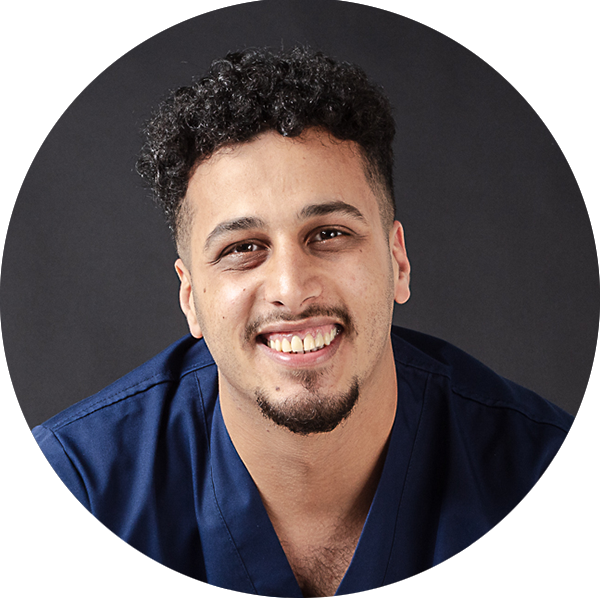
„Everywhere you go, you’ll get culture shock. I knew that before I came here but fortunately here in Romania, people are very friendly. I felt at home very quickly, my neighbours and my university classmates helped me learn the language, told me about the traditions, the food,” Ammar Joma recalls of coming to Romania. „Now it feels like my second home here.”
He arived as a student, but in the meantime the war in Syria started, prompting him to seek asylum in Romania. He continued his studies and is now a resident doctor in orthopaedics at Timisoara County Hospital.
He chose medicine because he saw, as a child in Syria, what suffering means. „I always wanted to help and contribute to a better life for people. There’s nothing like seeing a patient who was suffering before and, after your help, smiles,” says Ammar. He is passionate about what he does, the complexity of the human body and the solutions he can find as a doctor to alleviate people’s suffering.
„It’s a great feeling to be able to give back to the community that has helped you so much and made you feel at home,” Ammar says. It was hard for him in the pandemic, he worked very hard, but with the joy that „I could finally give something back to the people who helped me when I arrived, and who gave me everything they could”.
Every small gesture of gratitude or kindness brings joy to his heart. He can’t forget an orthopedic patient with a hip prosthesis thanking him that he, a stranger, has done everything to make her feel better. Nor can he forget his neighbor, an elderly lady, who saw he was a newcomer in the building and always offered him something good to eat. „Such moments made me want to get more involved to help people,” says Ammar.
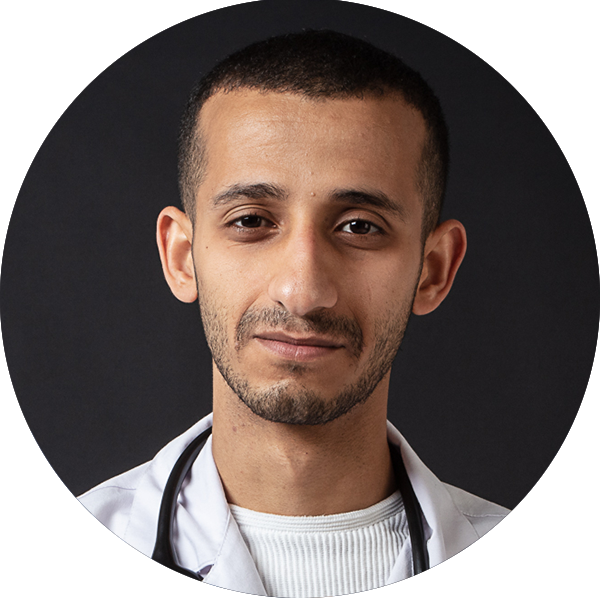
„I think the suffering caused by war and the suffering caused by Covid is almost the same, it’s just a different tool. In pandemic there is a virus that affects and kills people, and in war there are guns and shooting, but the result is the same. I have seen how dangerous the virus is in the months that I have worked in the Covid hospital and I believe that everyone should be aware of the pandemic and take all measures to protect themselves,” says Ebrahim Musawa.
Ebrahim is a refugee from Yemen who has temporarily lived in Saudi Arabia. He is now is a medical student in Timisoara and a volunteer in the Intensive Care Unit at the Municipal Hospital. He knows better than anyone what war means. „That’s why I asked for asylum. When the war started in Yemen, you couldn’t live there anymore. It seems like it’s never ending, it’s very painful,” he says.
Medicine was his childhood dream. „I was fascinated all the time by the way doctors do their best to help people, treat them and make their lives easier.” He wanted to be one of them. During the pandemic, he couldn’t stay away. He was eager to be on the front line. „I think it’s the duty of every student and doctor to help in this pandemic. If we wouldn’t do that, who would?” asks Ebrahim.
When he applied to volunteer, he knew it was risky. His family got scared and tried to stop him, but for Ebrahim it’s a duty and a passion to be there. „Working in the hospital has made me more integrated into the Romanian community,” he says. He was shocked at first by how sick people were, many of them intubated, sedated, in serious condition. It affected him. It also affected him that outside the hospital there were people who believed there was no Covid, who didn’t protect themselves and others. Being so close to the patients and their families, he saw what the suffering caused by the virus meant.
„We can learn from what happens,” says Ebrahim hopeful. „And it’s great to see a patient you’ve treated of Covid leave the hospital in good health,” he adds with a smile.
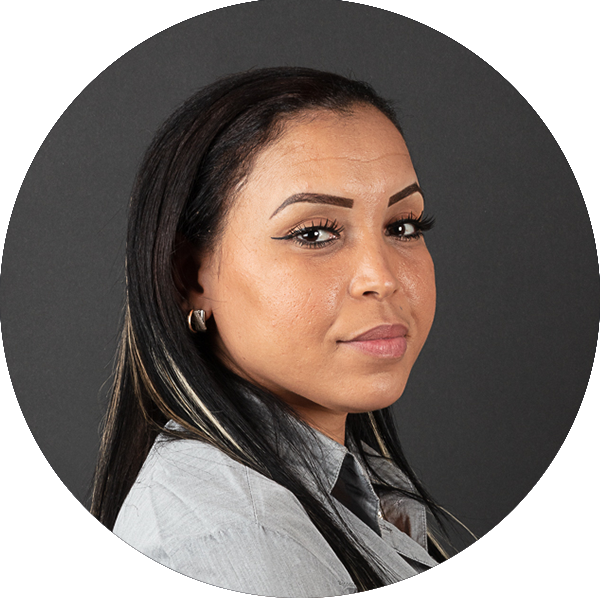
„Nursing is my life,” says Rivalda Fernandez Maria Indira. She is from Havana, Cuba’s capital, and at 17 she started training to work in the medical field while at 19 she specialised in intensive care nursing. „The most beautiful thing is when you can help someone who is sick, when you can relieve their pain,” she adds.
For 12 years, she worked with critically ill patients, doing everything she could to save them. In 2016, she had to leave Cuba for political reasons. „My husband was being persecuted because of Cuban politics and we decided to leave before something bad happened to us. It was important to protect my life, my child’s and my husband’s,” Rivalda recalls.
They wanted to go to the US, but couldn’t, so their journey towards a safer life took them to Russia, and then Serbia where they spent eight months in a camp waiting for the Serbian-Hungarian border to open. In the end, they decided to go to Romania.
„We entered Romania crossing the border near Timisoara. We walked for three days. Three days with my son, husband and mother-in-law. It was hard,” recalls Rivalda their arrival in Romania. When the Romanian police found them, they applied for asylum and were granted it after a four-year process.
She would very much like to work as a nurse in Romania, although, for the moment she cannot. She admits that her Romanian is not well enough and it’s difficult to get her studies recognised. „I am a licenced practical nurse in Cuba, but here I would have to work a nursing assistant. I have the same studies as a icenced practical nurse in Romania, but the specialisation on my diploma has different equivalent here, meaning I should work as nursing assistant” explains Rivalda.
She doesn’t want to do anything else. „Twelve years of my life I was a nurse! It’s my passion and it’s what I do best,” says Rivalda, hoping that one day she will be caring for patients in an intensive care unit in a Romanian hospital.
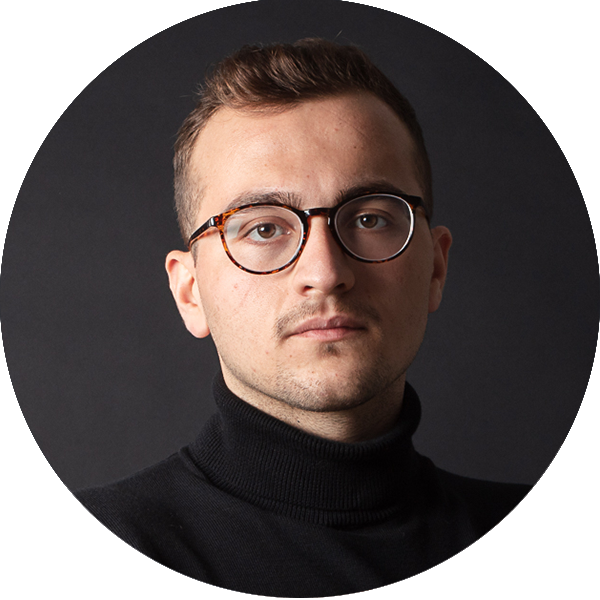
„It’s a good place for me, stable and that’s exactly what I was looking for, stability,” he says about coming to Romania. Since arriving as a medical student in Romania in 2016, Mohamed Alili has called this place home. He left Syria behind in harsh conditions, forced to flee and apply for refugee status. He was very young, 17 and an activist, campaigning for justice in Syria because „I believed there was an obligation: as a human being and as a Syrian, I had to do something for my country”.
„The best decision I ever made was to join as a volunteer in a Covid hospital,” says Mohamed. He saw how much need there was, how overburdened the medical system was, especially in the ICU area, and decided he wouldn’t stay away, despite the fear of his friends and parents who didn’t sleep at night thinking that he might get infected. „I told them, no, it’s my decision. I didn’t think so much about the risks or consequences because I believed being a doctor is like being a soldier, going whereever you’re needed, it’s a duty. I wasn’t afraid because I was careful, I followed the protocol exactly and I had all the medical protective equipment I needed,” he explains.
The best feeling in the world Mohamed had when seeing patients leaving the ICU on their feet after they had been in a serious condition, even intubated. It wasn’t always easy for him. „It was very hard, many others died there in the ICU. Some of the patients I got attached to … yes, it was exciting to get to know these people so well,” he confesses. He suffered a lot when a young patient he had become close to, befriended and talked to every day, took a turn for the worse and died. „I knew so much about him and he knew so much about me,” Mohamed says with pain in his voice. He knew from school that, as a doctor, you shouldn’t develop emotional bonds with patients, that your professional mission is different and that it can affect you. But he couldn’t detach himself.
He always presented himself as a refugee in and out of hospital because he wanted to show that refugees are not a burden. On the contrary, refugees have gone through different and hard things in life, and bring with them experience that people here may not have, experience that can help improve the system.
He has learned a lot from working in the intensive care unit of a Romanian hospital. „By helping people and supporting the medical system, I got to know it better, to know where the problems are and where it can be improved. I hope to be a part of it in the future,” says Mohamed.
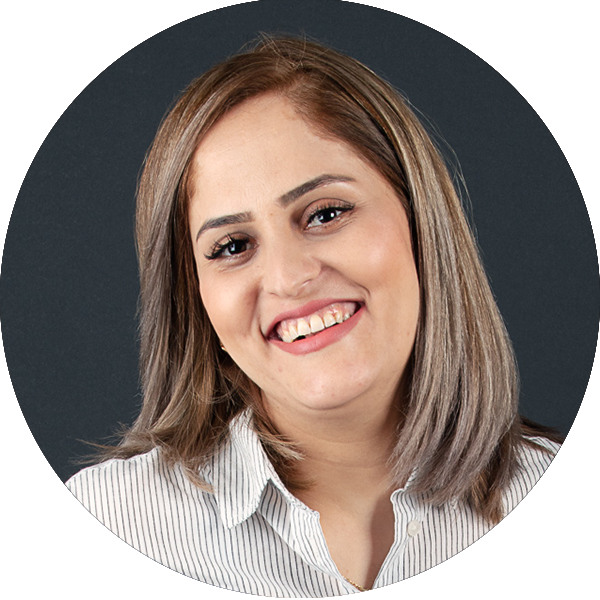
„I left my home in Kurdistan, Iraq, because there are too many problems there, not a peaceful place where you could feel safe,” says Miran Rizhin, who has been living in Romania for four years. „I didn’t have the conditions to lead a normal life, to be a normal person,” she recalls.
„In the past it was fine, now it’s not. Now it’s war,” says Miran. She remembers the hardship, no electricity, water, gas and problems with her salary, which never came in full. Like many other refugees, Miran left for a better life and, above all, for a life not governed by fear.
She is a doctor, but so far, as much as she has wanted to, still not yet managed to practise in Romania. In the process of finalising the paperwork, she needed to overcome the obstacles of finding an authorised Kurdish interpreter who can officially translate her diploma. In Iraq, she worked for five years in a hospital laboratory.
„I chose medicine because I liked it a lot, I want to be helpful, I want people to be healthy and happy,” says Miran. She only feels fulfilled when she can do something for people and can’t wait to practice medicine in Romania.
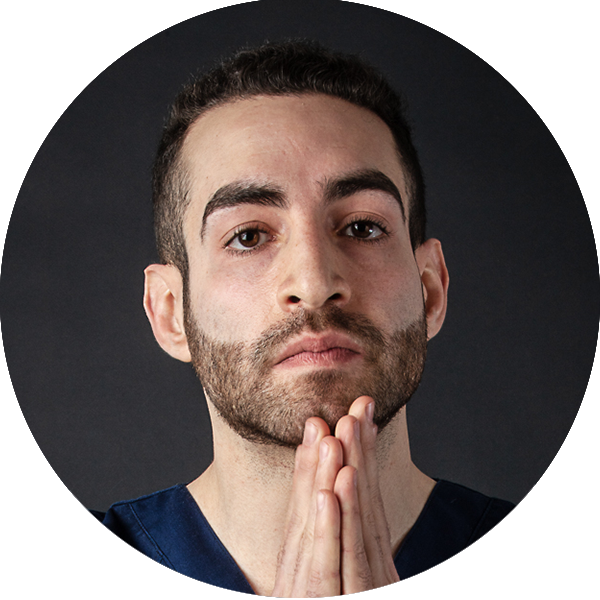
„I had the chance to help in the pandemic,” says Mahdi Kawar, a refugee, medical student in Romania and volunteer in the intensive care unit of a hospital. Mahdi is Syrian, born and raised in Kuwait. But he has never felt at home there. „My home is where my family is, but in Kuwait I never felt like I belonged.”
As a child, he wanted to be a doctor, just like his father. He used to go to the hospital and was impressed by the way his father, a role model for him, saved people. He never imagined he could do anything else. „It’s the only field I feel I belong to,” Mahdi says.
When needed, Mahdi jumped in to help. When Romanian hospitals were full of Covid patients, when doctors could barely cope, Mahdi Kawar didn’t hesitate. He filled in a volunteer form on the university website and went to the front line, in intensive care.
„I’m not afraid of Covid,” he says. „There are so many infections and viruses in this world, and if I were afraid of them all, I wouldn’t be able to practice medicine. It’s my mission to be there, to fight them, not to fear them.”
Many people can’t believe that a foreigner is so dedicated to helping Romanian patients get through illness more easily. „Medical staff was so needed!” exclaims Mahdi. It was harder for the patients to figure out who was there for them, under all the layers of protection, especially since some of them were unfortunately, in critical condition. Sometimes he sat and listened, observed, spent more time there than would have been needed on his shift.
But the doctors, nurses and nursing assistants in the hospital, exhausted from so much work, were grateful to the volunteers who helped monitor and took care of the patients, fed them, cleaned them and administered treatment. And Mahdi was grateful that he could do that, that he could help and learn where it was hardest.
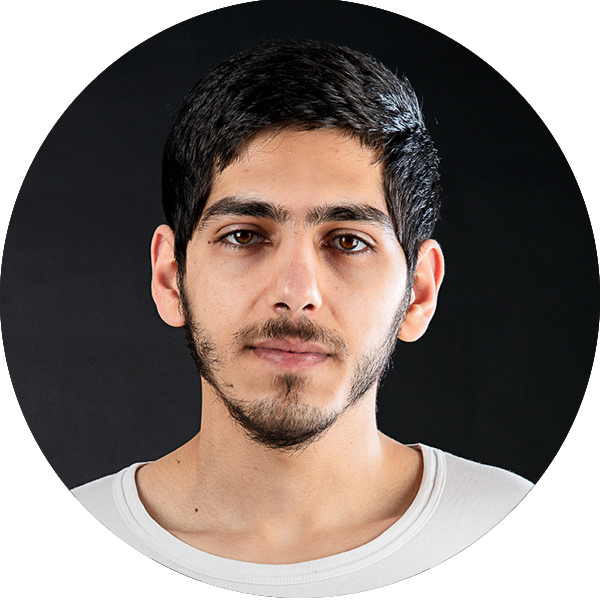
„I chose medicine because I believe is the noblest profession,” says Ismael Alhammadi, a Syrian citizen born in Kuwait, now refugee in Romania. He is studying in Brasov and would like to specialise in general surgery when he graduates. Ismael wishes to remain in tBrasov, the city at the foot of the Tâmpa mountain, which has so generously welcomed him.
Although he has done all his internships in the hospital from the start, seeing patients every day, sadly for him, during the pandemic, students were not allowed to do internships or volunteer in Covid hospitals, as in Bucharest or Timisoara. It would have been important for him, both as a person who wants to help and as a future doctor eager to gain experience.
Ismael would have loved to work there, on the front line, helping and learning in a hospital that treats Covid patients. He wouldn’t have been afraid. „I live alone, my parents aren’t here, I wouldn’t have anyone to put in a risky situation,” he says.
However, during the pandemic he learned something important for his career as a future doctor. „At any moment something can happen and nothing is stable,” says Ismael, who knows that the next time the need arises, nothing will stop him from being on the front line.
Share on Facebook Share on Twitter